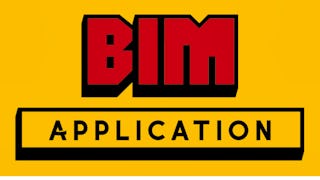Filter by
SubjectRequired
LanguageRequired
The language used throughout the course, in both instruction and assessments.
Learning ProductRequired
LevelRequired
DurationRequired
SkillsRequired
SubtitlesRequired
EducatorRequired
Explore the Additive Manufacturing Course Catalog
 Status: Free
Status: FreeUniversity of Manchester
Skills you'll gain: Process Engineering, Molecular Biology, Chemical Engineering, Life Sciences, Biochemistry, Bioinformatics, Biology, Pharmaceuticals, Environmental Engineering, Manufacturing Processes, Process Development, Microbiology
 Status: Free
Status: FreeNational Taiwan University
Skills you'll gain: Autodesk Revit, Building Information Modeling, Autodesk, Construction Estimating, Simulation and Simulation Software, 3D Modeling, Construction Management, Data Integration
 Status: New
Status: NewIndian Institute of Technology Guwahati
Skills you'll gain: SolidWorks (CAD), Computer-Aided Design, Computer Graphics, 3D Modeling, Mechanical Design, Manufacturing Processes, Engineering Drawings, Visualization (Computer Graphics), Engineering Design Process, Prototyping, Mechanical Engineering, Manufacturing Operations, Industrial Design, Automation, Production Process, Manufacturing and Production, Simulation and Simulation Software, Chemical and Biomedical Engineering, Robotic Process Automation, Systems Architecture

Skills you'll gain: Product Lifecycle Management, Generative AI, Product Management, ChatGPT, Artificial Intelligence, Customer experience improvement, Technical Product Management, Product Improvement, Prompt Engineering, Microsoft Copilot, Ideation, Ethical Standards And Conduct

Georgia Institute of Technology
Skills you'll gain: Supply Chain, Supply Chain Management, Logistics Management, Logistics, Transportation Operations, Procurement, Inventory and Warehousing, Warehouse Management, Manufacturing Operations
 Status: Free
Status: FreeCoursera Instructor Network
Skills you'll gain: Lean Manufacturing, Continuous Improvement Process, Industrial Engineering, Operational Efficiency, Quality Improvement, Emerging Technologies, Manufacturing Processes, Automation, Change Management, Cross-Functional Collaboration

University of London
Skills you'll gain: Computer Science, Debugging, Development Environment, Computer Systems, Web Applications, Arithmetic, Javascript, Computer Networking, Computational Thinking, Theoretical Computer Science, Human Computer Interaction, Hardware Architecture, Program Development, Computer Graphics, Operating Systems, Cybersecurity, Computer Programming, Problem Management, General Mathematics, Applied Mathematics

University at Buffalo
Skills you'll gain: Model Based Systems Engineering, Systems Engineering, Industrial Engineering, Manufacturing Processes, Internet Of Things, Product Lifecycle Management, Enterprise Architecture, Verification And Validation, Process Analysis

University of Michigan
Skills you'll gain: Internet Of Things, Manufacturing Operations, Digital Transformation, Technology Solutions, Business Technologies, Business Transformation, Cloud Computing, Automation, Operational Efficiency, Emerging Technologies, System Implementation, Technology Strategies, Real Time Data, Value Propositions, Data-Driven Decision-Making, Cybersecurity, Scalability

University at Buffalo
Skills you'll gain: Digital Transformation, Data Sharing, Manufacturing Operations, Business Transformation, Workflow Management, Product Lifecycle Management, Data Storage, Process Management, Information Management, Goal Setting, Data Management

University of Minnesota
Skills you'll gain: Design Thinking, Process Mapping, Kanban Principles, Lean Methodologies, Lean Manufacturing, Agile Software Development, Workflow Management, Business Workflow Analysis, Product Development, Agile Methodology, Lean Six Sigma, Process Improvement, Software Development, Software Development Methodologies, Continuous Improvement Process, Innovation, Product Testing

University at Buffalo
Skills you'll gain: Control Systems, Machine Controls, Manufacturing Processes, Internet Of Things, Automation, Software Systems, Real Time Data, Artificial Intelligence, Machine Learning, Open Source Technology
Additive Manufacturing learners also search
In summary, here are 10 of our most popular additive manufacturing courses
- Industrial Biotechnology: University of Manchester
- BIM Application for Engineers: National Taiwan University
- Digital Manufacturing: Indian Institute of Technology Guwahati
- Generative AI: Supercharge Your Product Management Career: SkillUp EdTech
- Supply Chain Principles: Georgia Institute of Technology
- Lean Manufacturing & Robotics for Flexible Systems: Coursera Instructor Network
- Introduction to Computer Science and Programming: University of London
- MBSE: Model-Based Systems Engineering : University at Buffalo
- Industrial Internet of Things (IIoT): University of Michigan
- Digital Thread: Components: University at Buffalo










